I understand that PCOS plays havoc with one’s life, affecting one’s looks and reproductive health. I often find that both these issues weigh heavily on a patient’s mind and can lead to secondary issues like lack of confidence, social anxiety, etc.
That is why we dermatologists work in close association with gynaecologists to ensure that while gynaecologists take care of the reproductive health of the patient we play a role to help PCOS patients look their best.
In this article, I cover some of the tips and tricks that a PCOS patient can engage in and also the procedures they can opt for to help retain and restore their skin and hair health.
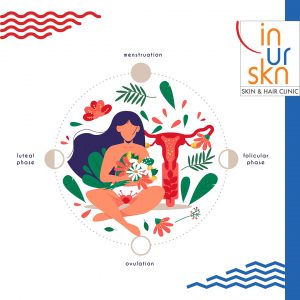
Background
Polycystic ovarian syndrome (PCOS) is a hormonal disorder that affects around 5-10% of women of reproductive age group. It causes enlarged ovaries and small cysts around their outer edges. It is mainly caused due to hormonal imbalance, mainly increased levels of testosterone and insulin. The reproductive health issues that one may experience range from irregular periods to trouble conceiving a child. Meanwhile weight gain is a common symptom of PCOS also.
How Does One Diagnose PCOS?
While you may be experiencing some of the symptoms of PCOS mentioned below, it is not a good idea to directly jump to conclusions. It is best to see a gynaecologist. (If your dermatologist suspects PCOS he or she may refer you to a gynaecologist). A gynaecologist will take a detailed history and carry out an examination. The gynaecologist may also recommend blood tests to detect abnormal hormonal levels and an ultrasound to detect ovarian size and volume. It is only after this that the gynaecologist may conclude that you have PCOS and may prescribe medications to improve your reproductive health.
What Skin And Hair-Related Symptoms Can I Expect In PCOS And What Should I Do?
PCOS can present with a variety of symptoms. One may not have all the symptoms. It is often the skin and hair-related symptoms that prompt patients to seek medical intervention. Here is a list of the common symptoms that one may experience and what you can do about it:
1. Acne
PCOS-related acne often flares up on the lower face, including the jawline, chin, and upper neck. Although not a hard and fast rule, these areas are considered to be a hormonal pattern for acne. Women with PCOS may notice that acne lesions are deeper, larger, and slower to resolve.
It is important to remember that while you may not have a choice in terms of the hormonal levels and the breakouts you may experience you can definitely minimize them by following some of the basic acne prevention tips as listed in my article here:
https://www.inurskn.in/be-spot-on-with-your-anti-acne-regimen/
And if acne still remains a troublesome condition for you, I recommend that PCOS patients should start on oral and topical medications that can help them reduce outbreaks substantially. And in cases of very severe acne, I recommend that PCOS patients undergo chemical peels to control their acne followed by laser spot reduction treatments to handle the marks that are left behind.
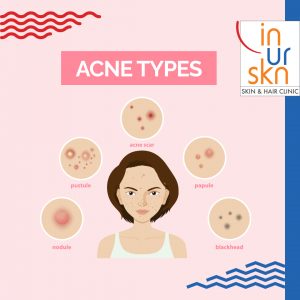
2. Darkening Of Skin.
One may find the presence of thick, dark, velvety patches of skin under your arms, on the back of your neck, and in your groin area. This condition is called acanthosis nigricans. Some patients may also experience an overall increase in pigmentation.
Here are some pointers to keep in mind when dealing with pigmentation which is not just PCOS induced.
- Home remedies and over-the-counter medications should be avoided at all costs, as one is never sure if these will help or actually react and cause more problems.
- Sun is enemy number one when it comes to increase in pigmentation. I would advise that whenever you move out of your house ensure that you apply sunscreen, wear long clothes that cover your hands and legs, use a scarf or a hat, and lastly use sunglasses.
- Pigmentation is not the same as dirt, rubbing and scrubbing do not help the situation. It actually worsens the situation and increases the pigmentation. Make sure that you wear loose clothes and never repetitively rub your skin (even during bathing).
Treatment of acanthosis nigricans is quite a long-term endeavor. A dermatologist will recommend oral and topical medications that will help in lightening your skin and also regaining the health of your skin.
In addition, there are chemical peels and ND YAG laser treatment that can help the situation.
However please note that acanthosis nigricans is only a symptom and not the underlying condition, the best way is to treat the patient for PCOS which will help regain skin health also.
3. Hair Growth In Unwanted Areas (Hirsutism)
One might have unwanted hair growing on their face (locks, chin, lips), stomach, or thumbs and toes. Sometimes this growth can be quite thick and very bothersome.
Some Tips To Deal With Excess Hair Growth:
Women in India are comfortable with waxing the hair or threading the hair on their lips and eyebrows. Some women like to bleach the hair on their face if the hair growth is not very thick.
These are all temporary procedures and actually do not differ from shaving in any way. The only thing is that shaving is often less painful than either waxing or threading. Shaving in no way affects either the density of the hair growth or the thickness of the hair. Shaving can be seriously considered by women.
The only proven solution for the reduction of hair growth is Laser Hair Reduction. Laser Hair reduction is the process in which the laser (light) is used to treat the affected area and tends to put the hair follicles into a resting phase.
However please note that even laser hair reduction is not an absolutely permanent procedure. Some patients may need annual touch-up sessions to maintain the lack of hair growth. PCOS patients often require more sessions than other patients, to see a visible reduction in hair growth.
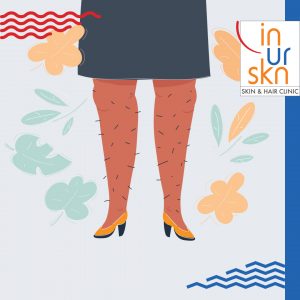
4. Hair Loss.
Women with PCOS might experience female pattern thinning of hair on their head, which could worsen in middle age. Also, PCOS patients may undergo a more rapid hair fall if they undergo a serious infection or ailment or medical procedure.
Tips and Tricks to deal with Hair Loss.
- Healthy lifestyle is something that plays a role in not just reducing hair loss but improving overall health. So to state the obvious please ensure that you eat a balanced diet, do not smoke or drink, exercise, and de-stress with meditation, yoga, etc.
- Do not use OTC medications or home remedies to treat hair loss. These can cause more harm than good.
- Do not wash your hair with very hot water and definitely not very frequently. Also during washing avoid commercial-grade shampoos and most importantly avoid using oil for conditioning.
You can read more tips on hair loss prevention here
A dermatologist will recommend a proper hair care routine including the proper shampoo and conditioner to be used based on your hair type and condition.
But more importantly, oral and topical medications can help reduce hair loss substantially and should be started as soon as possible.
More advanced treatments in terms of mesotherapy and PRP therapy may also be prescribed which basically help hair growth by means of using growth factor serums or platelet-rich plasma.
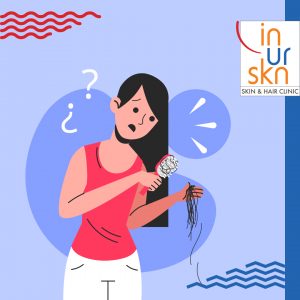
Advantages of controlling weight for PCOS patients:
About half of women with PCOS struggle with weight gain or have difficulty losing weight. PCOS can make you gain a lot of weight. And being overweight can make PCOS symptoms more serious. Losing weight keeps your cholesterol and blood sugar levels in check. Shedding even just a few kgs may improve the timing of your periods and help with practically all the above-mentioned symptoms.
If you suspect that you or a loved one has PCOS it is best to see a gynaecologist as soon as possible. An early diagnosis can help you make decisions at the right time to enable a very normal and happy life.
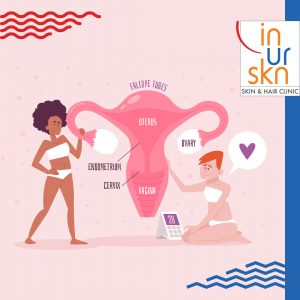
Disclaimer:
The objective of this article is to educate the reader and help them make wiser choices under the guidance of a trained dermatologist. It is not meant to be used by patients for self-diagnosis or for avoiding proper medical treatment. The images used in the above blog are only for visual representation purposes. Actual procedures and results may vary from patient to patient.
About Dr. Sejal Saheta and InUrSkn:
Built on more than a decade of experience of Dr. Sejal Saheta, we are an honest and affordable skin and hair care clinic in Powai, Mumbai. Our goal is to make each patient comfortable and happy with their appearance with the least amount of intervention.
Dr. Sejal Saheta has dual degrees of MD and DNB in dermatology and venereology and has worked alongside some of the senior-most doctors at the largest hospitals in Mumbai.
Located in Powai, InUrSkn is the largest skin and hair clinic in the central suburbs of Mumbai and offers the latest technology in the safety of world-class infrastructure.
We are happy to be a part of your journey to reach your health goals. If you think we have been able to help you, please do review us:
On Practo: http://prac.to/vkpj
On Google: https://goo.gl/zHfACo
How can Dr. Sejal and InUrSkn help?
No matter what your skin and hair needs, Dr Sejal Saheta ensures personal attention to each patient and creates customized and scientifically-backed treatment plans for each patient. Through her years of experience and use of technology at her clinic (InUrSkn – Skin and Hair Clinic) located in Powai, Mumbai, she has been able to consistently deliver great results in the field of dermatology and trichology to thousands of patients.
Also, InUrSkn offers some of the most advanced skin and hair treatments related to PCOS. You can read more about there here:
- Skin Rejuvenation & Skin Pigmentation Solutions: https://www.inurskn.in/procedures-done/skin-rejuvenation/
- Hair Loss and Hair Rejuvenation Treatments: https://www.inurskn.in/procedures-done/hair-rejuvenation/
- Laser Hair Reduction: https://www.inurskn.in/procedures-done/permanent-hair-removal-laser/
All of the above is done with the best-in-class machines within the comfort and safety of world-class infrastructure.




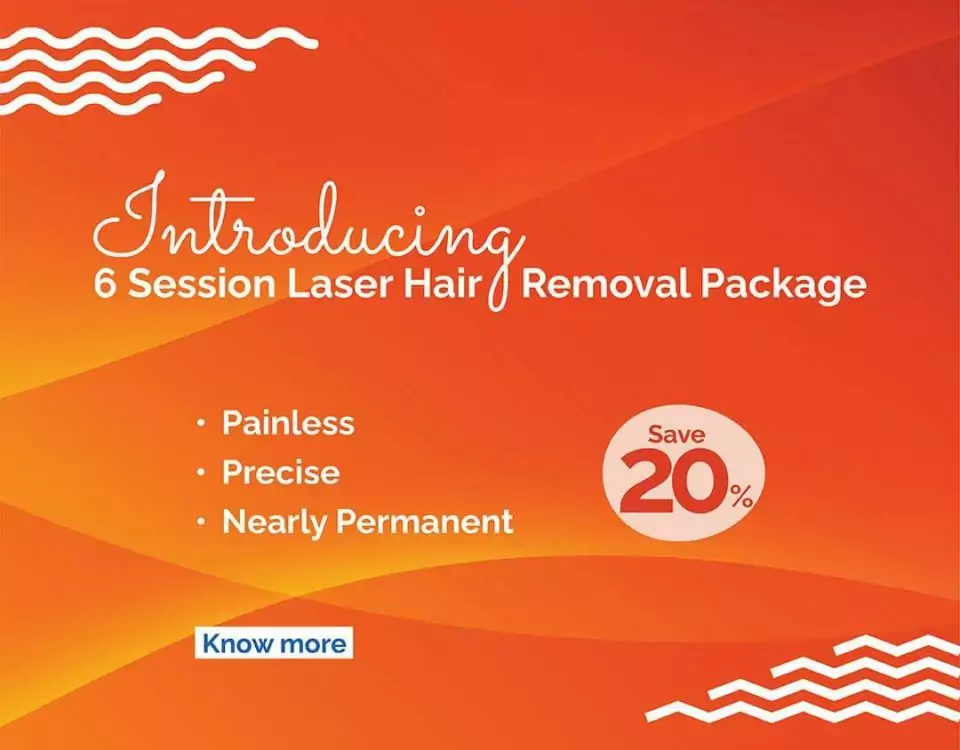

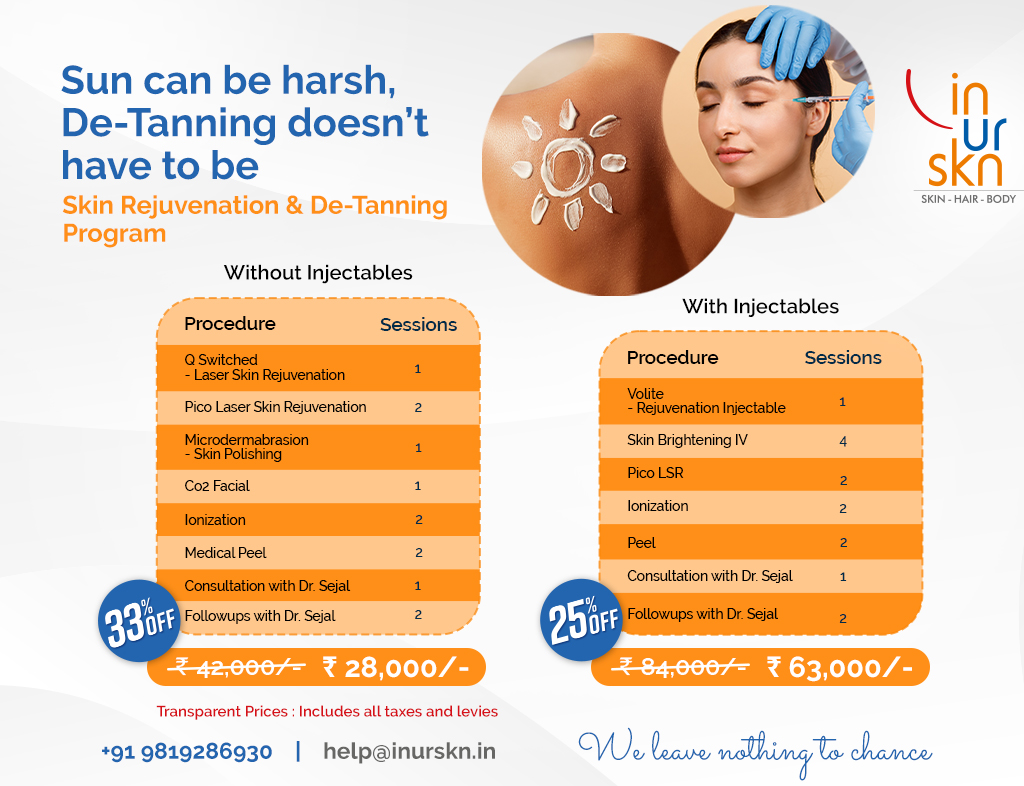




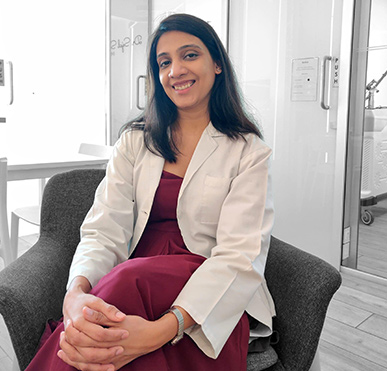









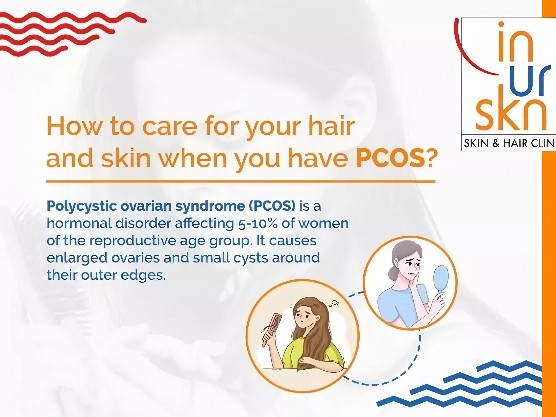
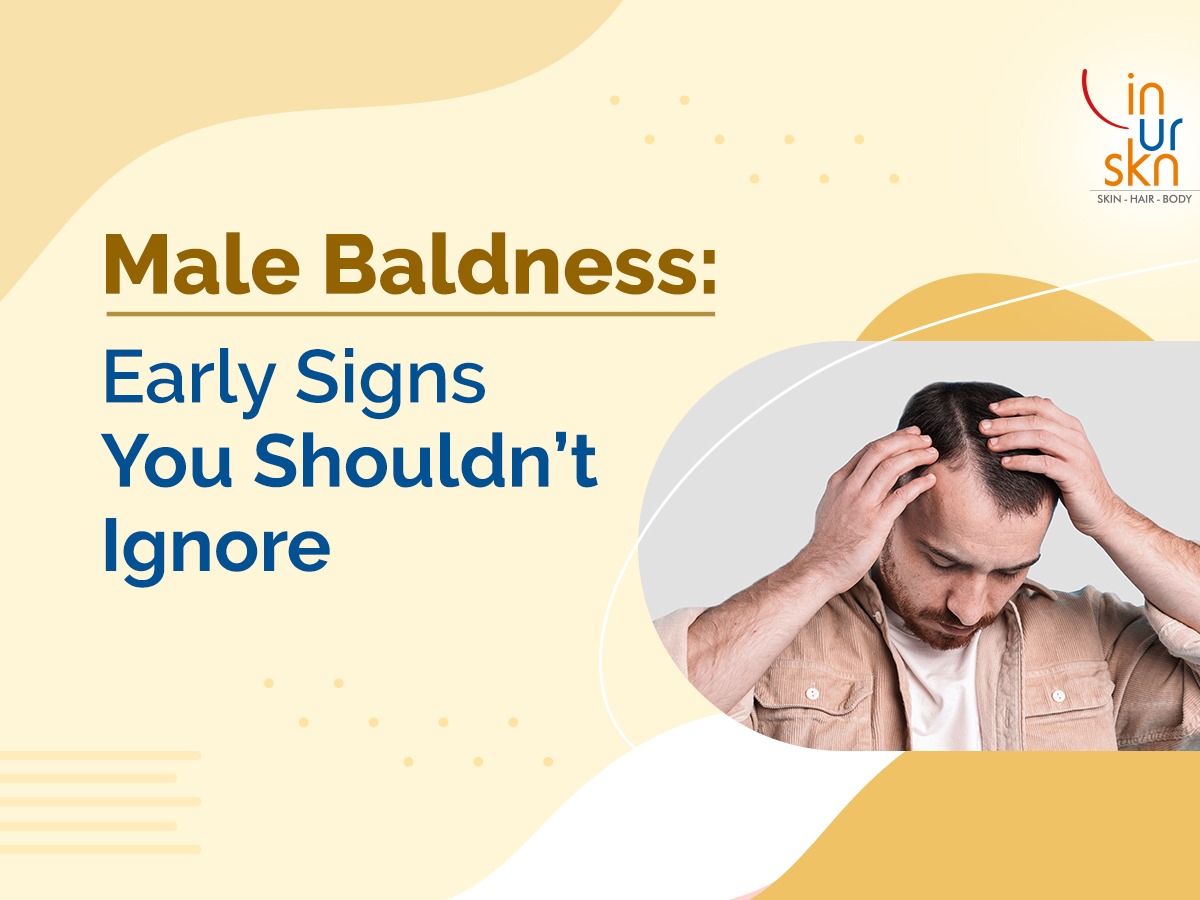

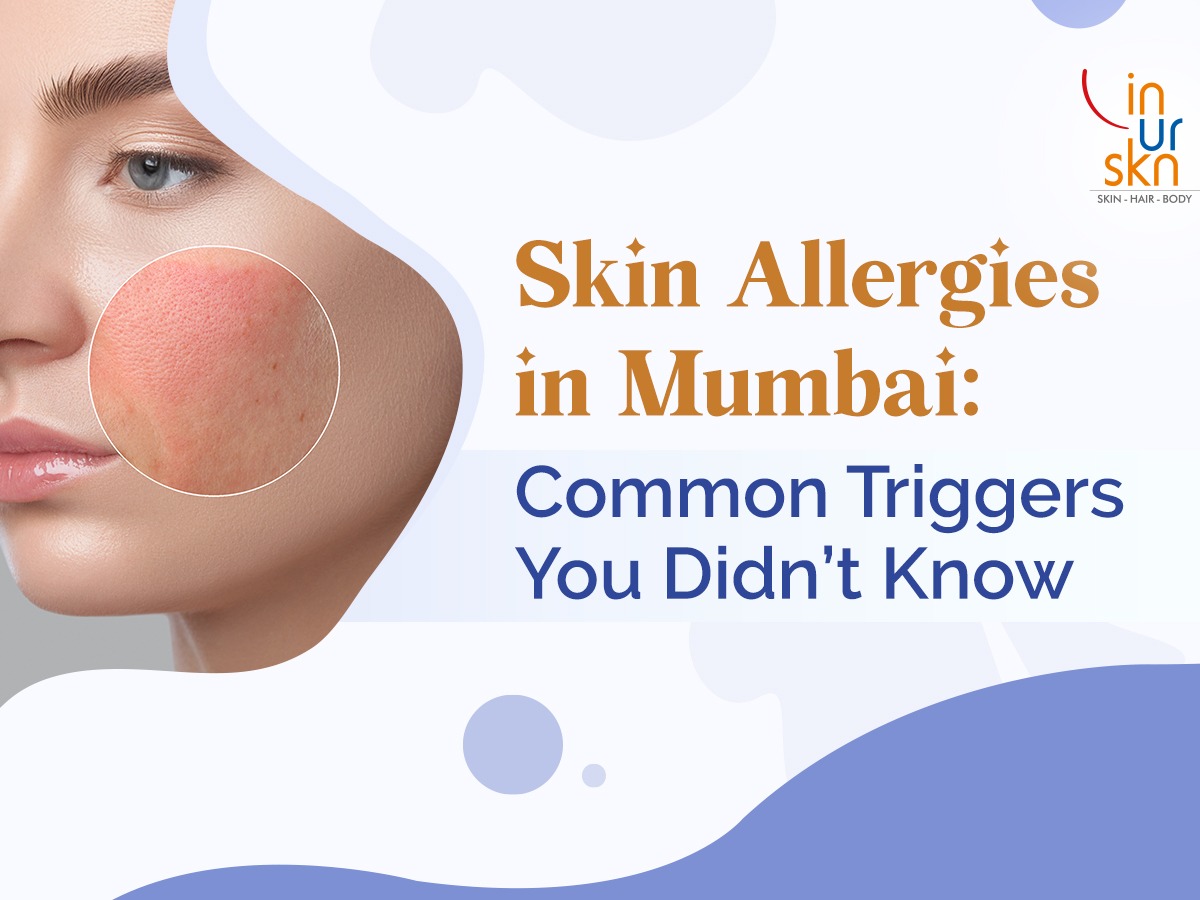
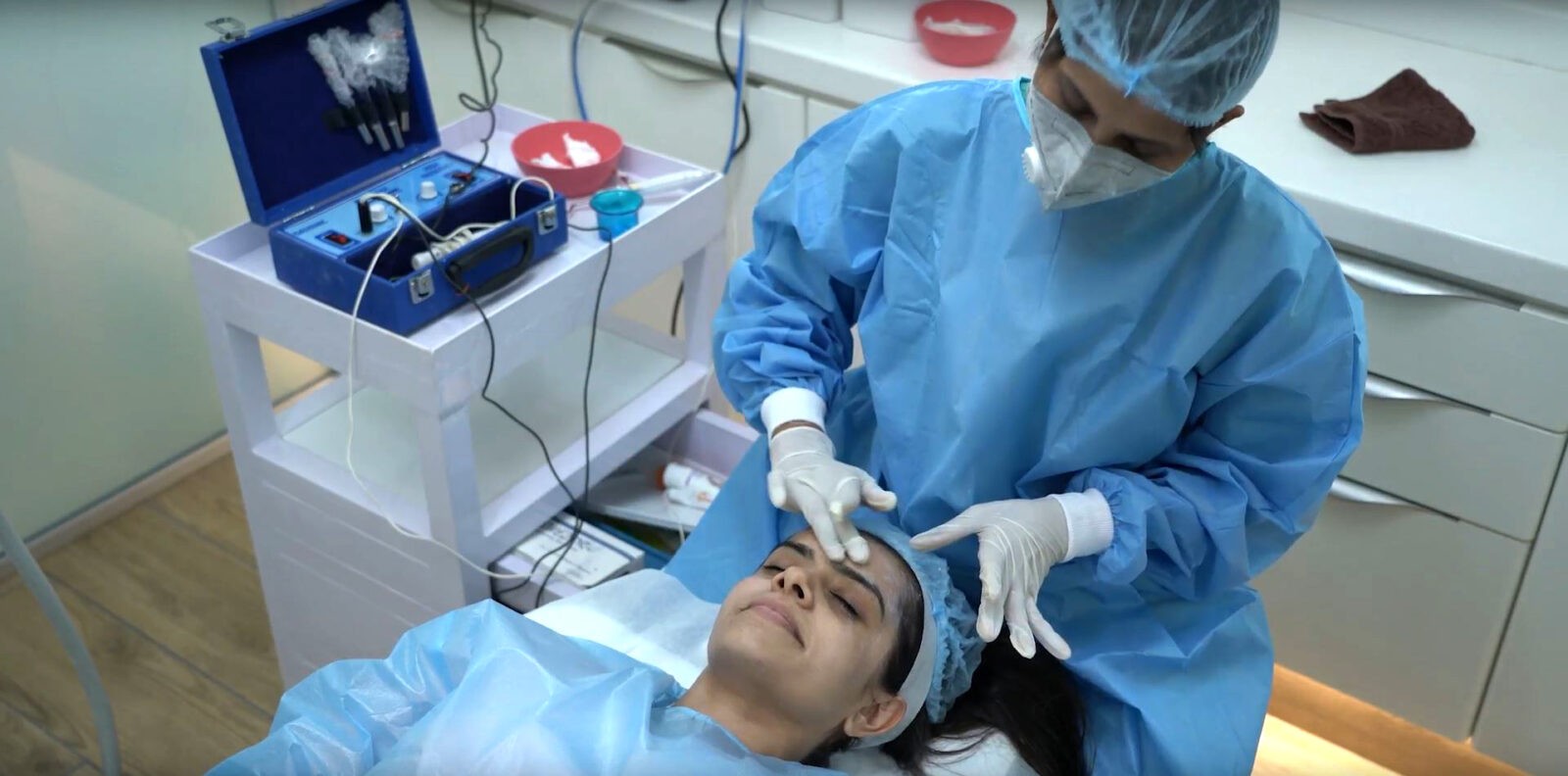
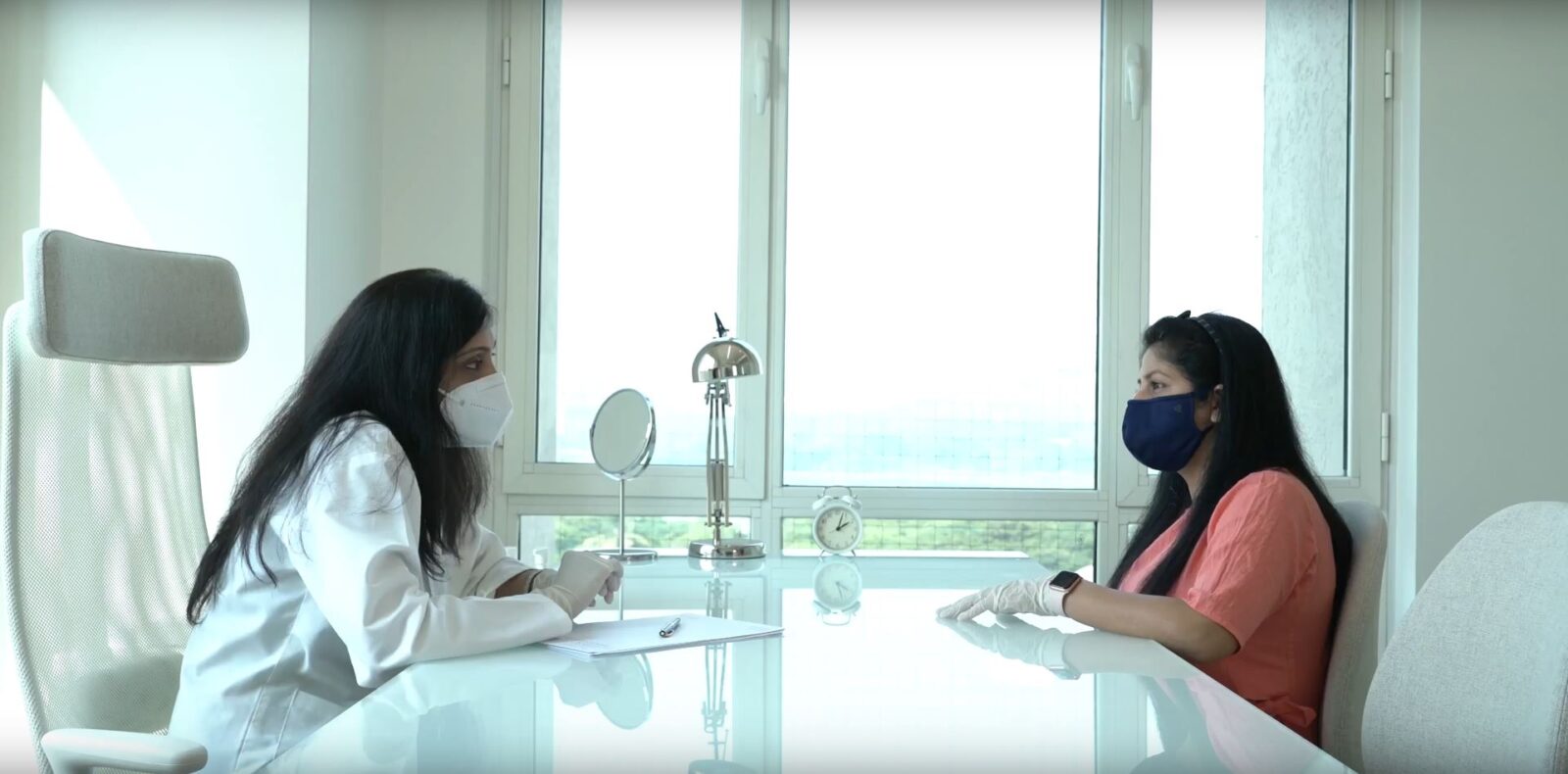

 Call us
Call us Book Appointment
Book Appointment Enquire
Enquire Location
Location




